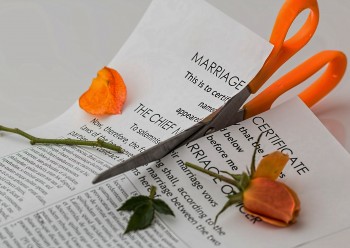Funeral Etiquette After a Divorce

Funeral Etiquette After a Divorce
Death is not the only thing that separates families. Although nothing is quite as final as the passing of a loved one, divorce often does just as good a job at keeping people from sharing their lives. Depending on how things stand within the families, you might still keep in contact with your ex’s family, you might be estranged from all of your previous in-laws, or you might share some other kind of arrangement.
When death occurs, blended and separated families can add an additional strain. Will there be awkwardness or uncomfortable feelings if you attend? Will someone in the family be hurt if you do not? Is it necessary to allow your children to go to the funeral but not for you to be there to accompany them?
Navigating Death and Divorce
Because every situation is unique and only you can know the specifics, it is a good idea to talk with the family to determine what the appropriate course of action is. Because you are no longer an official part of the family, you most likely won’t play a role in funeral planning or sit in the family pews (or take on other honors unless explicitly asked). However, that doesn’t mean you can’t participate in the shared grief.
Here are a few steps for funeral etiquette and divorce:
- If you get along with your ex, talk to him/her about your desire to attend and coordinate the details with one another.
- If that isn’t a possibility, talk to the person in charge of planning the funeral. As he or she will be the one most likely to know the details and the family situation, you can get the information you need, including how you can participate without giving offense.
- Make arrangements for children. If you aren’t welcome at the funeral, find a way for children to attend (if desired). It is rarely worth denying them the chance to say goodbye because of family squabbles.
- Never allow your situation to upstage the family’s grief. No matter how close you were to the deceased, try to maintain respect for the family first and foremost.
- Send funeral flowers or a condolence card without an ulterior motive. If you aren’t welcome to attend the funeral, it’s okay to send a funeral gift, but make sure you keep your personal grievances out of it.
Neither divorce nor death is an easy situation to handle. When the two are combined, tensions tend to run even higher. Your grief is important, and you have a right to address it however you need, but that right tends to take a backseat to that of the deceased’s immediate family. This is one area where good relations and a little tact can go a long way.



